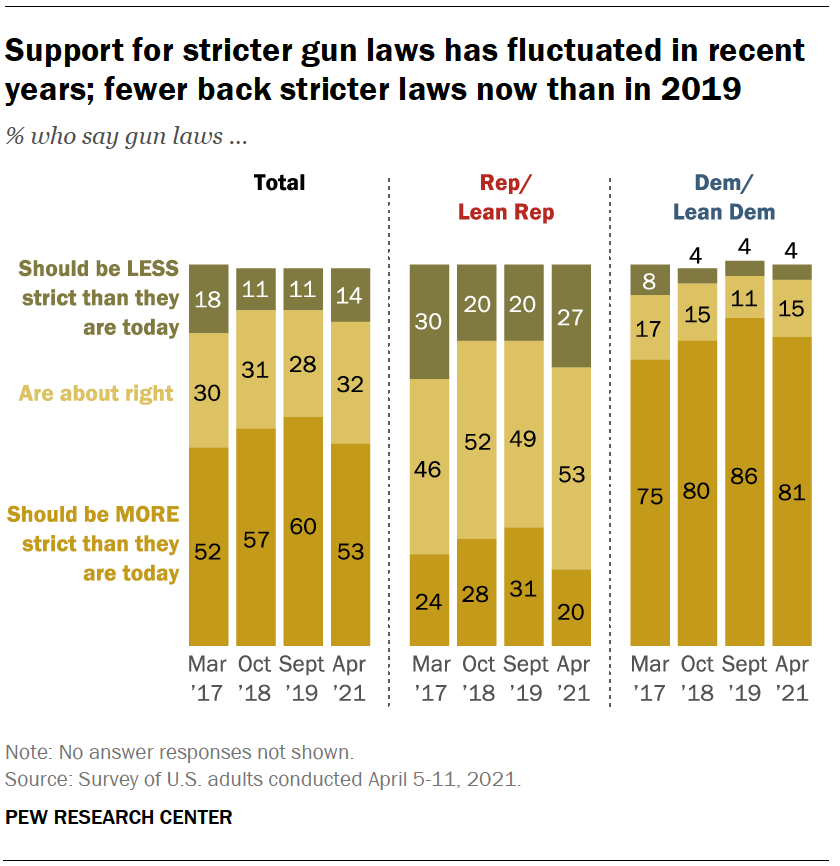Lexicus
Deity
I am not knocking their work here, I have come across their stuff on gun control before and it seems to make sense. But the RAND corporation is a hard right think tank that was mostly about promoting the cold war. That even they are on the gun control side of the argument makes me even more confused about the electoral coalition that keeps guns so available when most people are pro-gun control.
Spoiler A graph showing most people are pro-gun control :
I think the degree to which the US is functionally governed by a tiny and ideologically extreme minority due our idiotic constitution tends to be glossed over most of the time
Edit: more to say but lack time at the moment
